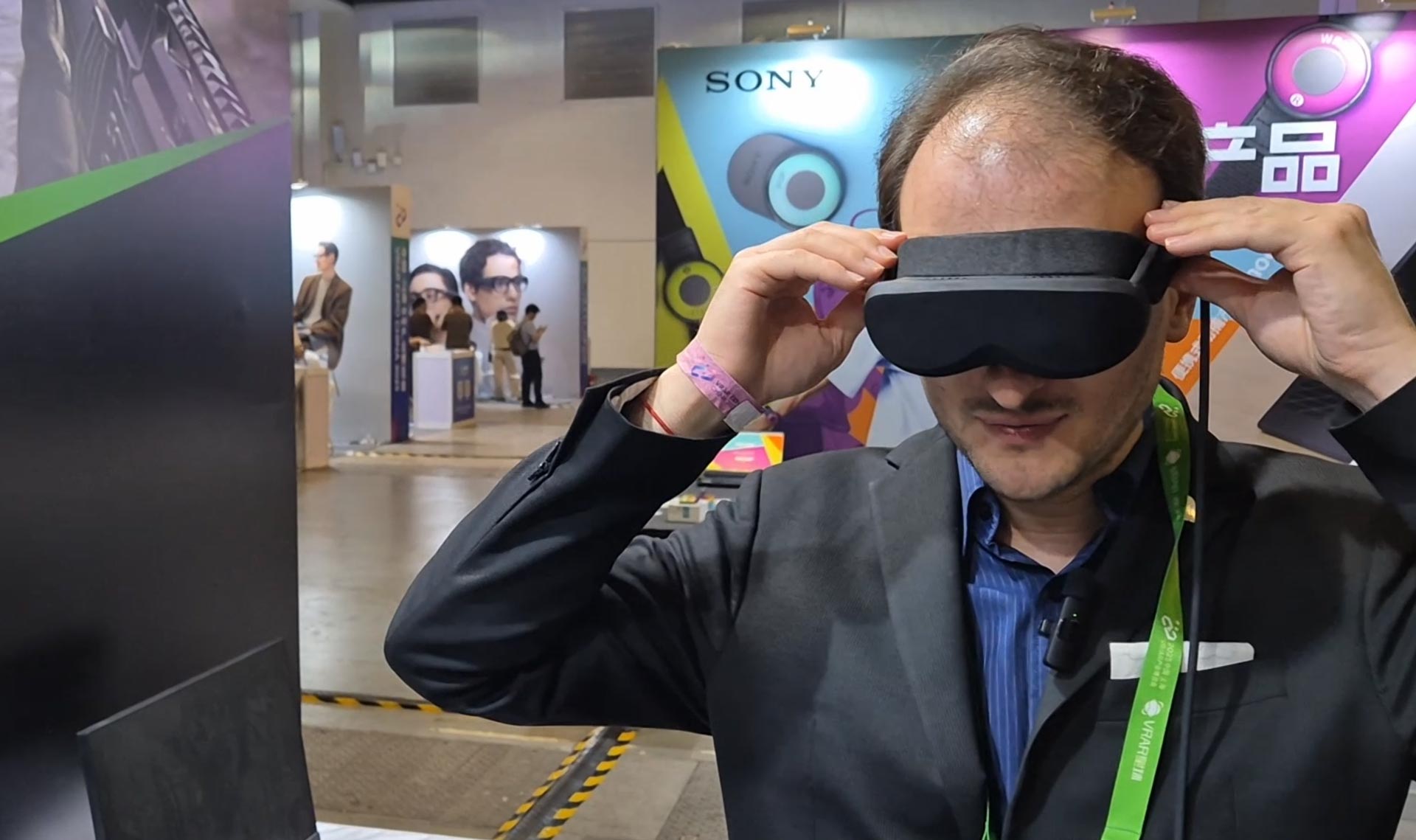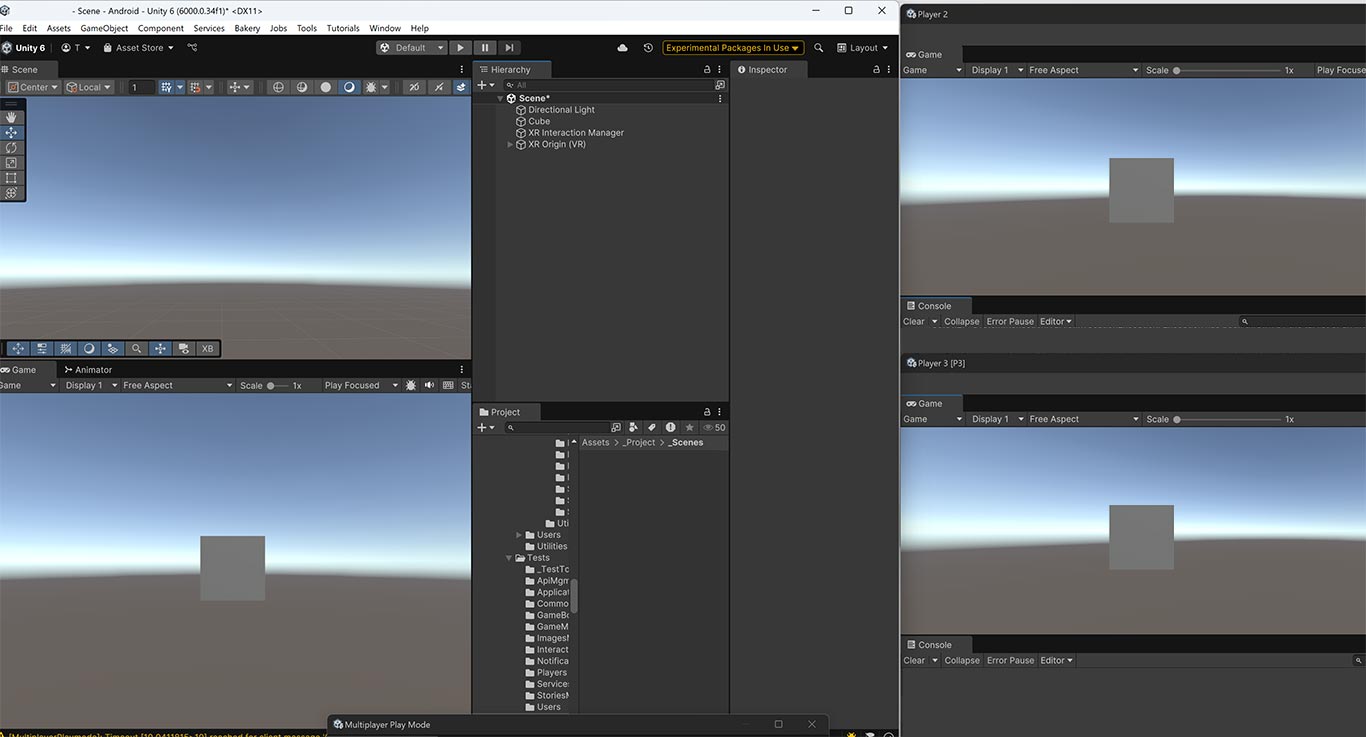Oculus reduces Virtual Reality entry cost and this is great for adoption
Remember the times where Oculus was used to promise a cheap price for the Rift so that everyone could experience virtual reality? Well, Pepperidge Farm remembers… and after what has happened in the last days, seems that Zuckerberg has a great memory, too.
When the Rift CV1 came out, we where all expecting a price around $350, but then it was revealed that actual cost was $599 (€742 in Italy, taxes included) and that it was without VR controllers, but only with an almost useless Xbox gamepad. Considering also the high requirements for a VR-ready PC necessary to run such a marvelous device, a lot of people jumped off the Oculus hype train.

Oculus Touch came out at an additional price of $200, so in total the price for Oculus+Touch system was $799, a bit too high for all innovators just wanting to give a shot to VR. I use virtual reality for my job, so I’ve made sacrifices and bought it: I’ve spent circa €950 for Oculus+Touch and circa €2000 to buy a top-notch VR ready PC (NVIDIA GTX1080, i7 and other fancy stuff like that). A total of €3000 to be inside this marvelous new technology’s world… and I’m not rich, so it has been really a bloodletting for me. Of course if I were just a random guy loving games, I would have never spent such amount of money just to try VR. Going for the competition, the HTC Vive, would have had little sense, since its price was identical: $799 (€899 in Europe) with the requirement of a VR ready PC anyway.
These high prices are one of the biggest reasons why VR adoption is going so slow and people is starting asking if VR is a fad like in the ’90s. Actually I strongly believe that these high prices are not meaning a failure of VR, but just a slowly adoption rate that will delay the breakthrough moment of VR, that will most likely happen in 2019-2020. Why 2019? Because before that time, VR prices will lower enough that VR can become affordable for most people… and in the meantime a lot of awesome content like Robo Recall will be released and the VR ecosystem will be so rich that people will crave having a VR headset at home.
It seems that Oculus is pushing hard to come to this point. First of all it is funding great content like Robo Recall, Dear Angelica and the upcoming Marvel Powers United VR. This fueling of money into the ecosystem and started to show its fruits: Jason Rubin has recently declared that a good amount of content on the Oculus Store has now gone beyond the 1M$ of income and that Oculus is now ready to fund more expensive games, to climb the ladder until they’ll fund AAA games. So they have a clear vision on how to get to a point where the Oculus Store is full of awesome content. But wait, there’s more…
Oculus now costs $399. Yes, you’ve read it right. If you’re one of the few that still didn’t know the news, well take a breath. Oculus costs $399, TOUCH INCLUDED. Oculus had already performed a discount of its prices, but now they’re damn insane. Oculus costs half of the Vive and offers more or less the same features. This is a discount offer that will last for 6 weeks and after that the price will be $499 that is anyway super-cheap. The first bundle of sales has gone immediately sold out, so Oculus is now selling a second bundle, that removes Xbox Gamepad (Yeeeeah!) and the Oculus Remote (WHY? I loved that! But, to be honest, since when I’ve my Touch controllers, I don’t use the remote anymore… so this has sense).
Saves $100 by removing the Xbox controller and Remote. We're focusing on Touch and wanted a new bundle that's less expensive for everyone.
— Brendan Iribe (@brendaniribe) July 14, 2017
Reason of this price slash is unknown… someone talks about a Zenimax injuction coming that could halt Oculus sales, so Facebook is lowering the price to sell the most possible units possible; some others think about Zuckerberg wanting to keep the initial promises of Oculus of an affordable VR: very romantic, but business doesn’t work this way: a company is all about money; others have underlined how Facebook wants to estabilish a platform, so can sell undercost hardware to earn then money on content (awesome games on the store) and services (Facebook and its ads); others, me included, think that the reason can be summarized in this picture:

Look at it: HTC Vive has sold a bit less than two times the units of the Rift. Reasons are many, from the open-ness of the system, to a better tracking system and a business model better oriented towards enterprise usages like arcades and VR cinemas. GearVR has sold an enormous number of devices, but many of them has been given out for free… and this is why in spite of the 8 millions unit sold, the revenue is very low. If we sum the revenue of the Rift and the Gear, we’re still below the one of the Vive! And if we don’t want to consider hardware sales, but only the platform, SteamVR programs work with both Vive and Rift, so Valve guys are very happy even of the Oculus sales (but HTC can’t be happy, like Ian Hamilton has pointed out in this great editorial).
Facebook had to do something to answer to Vive, that not only is selling very well, but has also announced a new cheaper tracking system and new awesome controllers. And they did what they could: they completely lowered the price. Has this worked? Yes, it worked awesomly. Reddit Oculus subreddit is literally flooded by people that have just bought the Rift. All people that escaped the hype train the last year, is jumping on it now and this is awesome for adoption…it is one of those steps we were waiting for having the explosion of VR in 2019. The only barrier now remains the VR-ready PC necessary to run this device and the non-user friendliness of Oculus Constellation setup.
Another possibility for the price slash can be a fight against the upcoming Windows 10 cheap headsets: announced at a price of $399 controllers included, they were expected to disrupt the market with their cheap price and ease-of-use, even if they are just a good-enough product. They were the Trojan horse with which Microsoft planned to gain the control on AR and VR as a platform. With current Oculus price of $399 users will be called to choose between spending $399 for a discrete product and $399 on a high-end device. Guess what they’ll choose…. if Microsoft planned to rule the market thanks to low price, well, it’s going to have hard times.

It has to be said that Redmond company still has the advantage of being compatible with almost any decent PC and this is a huge: some people I know are OK on spending $399 to get an awesome Rift, but they don’t want to spend additional $1000 to upgrade to a new VR-ready PC. So, the price wars have just begun…
On the other side, the king of the market, the HTC Vive, is there waiting to see what will happen with this price cut. If Oculus sales will outperform Vive’s ones, they’ll have to change strategy, cutting the price or announcing a new cheaper headset (LG’s one or the Vive 2). Vive has always the advantage of having almost a monopoly on the business side of VR because of their attention towards this part of the ecosystem (clear licensing model, Lighthouse system optimal for tracking large spaces, Vive Trackers, etc…) and in enterprise a little price difference is not an issue, so Oculus price cut can’t scare the Taiwanese company. But on the consumer side, it should, since Oculus is a great product and it also work on SteamVR… so Oculus owners can play the same games of Vive ones and furthermore play also games that are on Oculus Store. Having a Rift now is a huge advantage. At the moment HTC seems confident it will not change its price… but we’ll see: in business, pivoting to follow the market trends is super-important.
Apart from this triple-war, Oculus is continuing its investments in low prices announcing for 2018 a cheap standalone headset priced at $200. Again, stop a moment to contemplate that price: $200. $200 for a complete standalone system, that you put on and voilà, it works. Competitor standalone headsets, like Vive Standalone or Intel Alloy are expected at the end of the year to be priced around $1000. An all-in-one solution at $200 has a ridicolously low price. It’s just insane. In an article about Chinese market published on UploadVR, I found this interesting datum
one survey by Niko Partners last year found that half of Chinese gamers are interested in VR and 30 percent were willing to spend up to $200 on a device.
and so my best guess is that they’re pushing hard to penetrate the Chinese market, where people have few money and will never be able to afford a VR headset + VR ready PC in the upcoming times. As I’ve already said, for this reason, a lot of Chinese people I know have tried a VR mobile headset but never owned something like a Rift. This can be the key for Oculus to enter this super promising-market. (Even if I don’t know if the Chinese Government wants to allow Facebook to enter its market, we’ll see). And apart of Chinese people, a lot of people here would be interested to spend $200 to have a decent experience.

This device should be produced in cooperation with brands like Xiaomi
Oculus has plans to enlist China’s Xiaomi and its network of contract manufacturers to produce the new headset for global distribution, people familiar with the arrangement said. The device will feature Oculus branding around the world, except a custom version for China will feature Xiaomi branding and run some Xiaomi software applications, the people said. Hugo Barra, recently put in charge of Oculus’s VR products, was previously a Xiaomi executive.
Xiaomi surely knows how to produce cheap hardware and also surely knows how to please the Chinese government. As you can see, Facebook seems to disappear in China to be substituted by “Xiaomi software applications”. Ok, now it has sense.
In the Bloomberg report announcing the news, you can read that this device, codenamed Pacific, is not the same thing of the wireless version of Oculus codenamed Santa Cruz showcased at the last Oculus Connect. Santa Cruz will be a high end wireless VR device, while this will be like an evolution of the GearVR. As someone from Oculus says, it will be like something between a Rift and a GearVR.
As you can see from all these news, Facebook is really pushing on fostering VR adoption by lowering price entry point. And this is beneficial for everyone, since it’ll make more people enter into VR and because these bold moves will force competitors to do their moves and this can only be a good news for all the ecosystem. So, thanks Zuckerberg, maybe in the end we’ll all able to experiment virtual reality for an affordable price. See you in the metaverse!
Disclaimer: this blog contains advertisement and affiliate links to sustain itself. If you click on an affiliate link, I'll be very happy because I'll earn a small commission on your purchase. You can find my boring full disclosure here.




We have to add $50 for a third sensor in order to be able to compare Oculus and Vive (not same room-scale tracking accuracy tough afaik), but yeah… even that way $550 for Oculus will be way cheaper than $800 for a Vive. I guess HTC will have to do something if they plan to keep on top of those market share stats for high-end VR
Thanks for having pointed that out
(offtopic) Could you explain this strange behaviour Tony? https://uploads.disquscdn.com/images/2e069552df87ec57a3375520ebc7985c04a9cbbffaac5915e9a3bf3e922aa4c1.png
Have tried to comment on that post (“The sense of taste in virtual reality”) several times but it always gets Pending. It have also happened in few other posts on the blog, little weird… Don’t know if it has to do with a Disqus issue or some misconfiguration on the blog’s side but please check it as you may be missing some user comments.
Ok, thanks. I’ll try having a look at DISQUS settings
Solved. Is that if you put a link in your blog comment, it goes into moderation. But I don’t get notifications for comments in the moderation queue, so I left it there. Sorry for the inconvenience and thanks for having informed me. I approved your comment!!
Oh so that’s why… Thanks 🙂